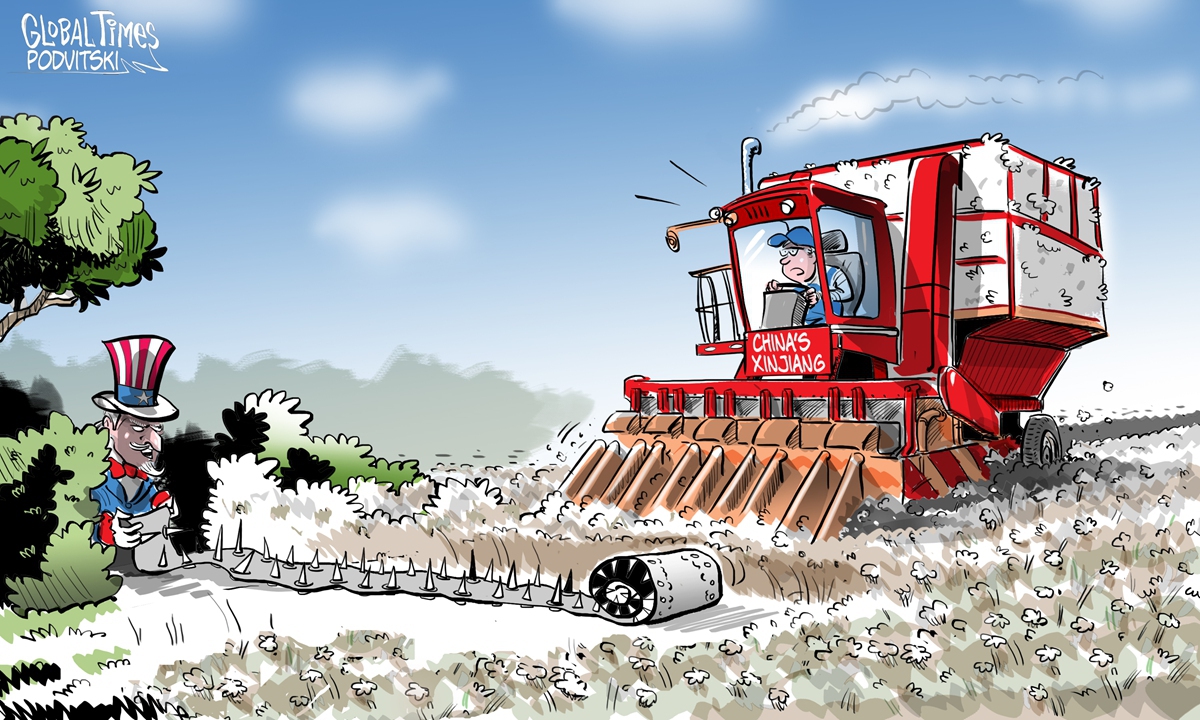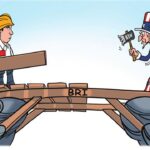Electronic products from Malaysia and Vietnam are facing closer US scrutiny over their components derived from so-called forced labor in China’s Xinjiang region, Reuters reported on Wednesday.
In September, the latest month for which US customs data are available, $82 million worth of shipments were either rejected or held for checks, 90 percent of which were electronics. More than two-thirds of the rejected or delayed shipments came from Malaysia or Vietnam.
If anything, the US scrutiny of components from Xinjiang is actually another attempt to pursue its “decoupling” from China in global industry chains. This has created more chaos for the already troubled world economy, to the detriment of every party.
The so-called forced labor claims about Xinjiang are utter lies concocted by the US. The US ban, based on these lies, is essentially a tool for the US to manipulate global value chains so as to completely exclude Xinjiang’s industries, such as cotton, tomatoes and polysilicon, from global supply chains. It also shows that some anti-China forces are completely unscrupulous in impeding China’s economic development by attacking Chinese manufacturing.
To ensure the enforcement of the ban on Xinjiang manufacturing, the US has even taken all kinds of previously unheard-of measures to cut off any possible entry of Xinjiang products. For instance, US customs officials have turned to isotopic testing, which can link cotton to specific geographic areas by analyzing the concentration of stable elements like carbon and hydrogen present in both the crop and the environment in which it has been grown, according to a Reuters report in September.
However, the malicious crackdown on Xinjiang’s industries, driven by the interests of some anti-China forces, will not benefit any party in global industry chains. On the contrary, this crackdown is a significant factor contributing to the disruption and vulnerability of global industrial chains.
Take Xinjiang’s polysilicon as an example. China’s polysilicon output accounted for 79 percent of the global production in 2021, of which 42 percent was from Xinjiang. The US ban will only exacerbate global supply chain problems for polysilicon products, pushing up downstream production costs and component prices for solar panel firms and undermining the US’ own efforts to develop its solar industry. For some Southeast Asian countries that are actively developing new energy industries, there is no doubt that the US approach has hindered the development of their own industries.
China-US relations are now at an important window of improvement, and it is hoped that Washington will cherish the hard-earned opportunity to promote economic and trade cooperation, instead of being trapped in its “decoupling” delusion, which will lead nowhere.
As for China, the Xinjiang-related issues are nothing but an excuse the US has used to suppress Chinese manufacturing in the global markets, with the view of creating economic chaos and problems for China. But it is also a reminder that China must accelerate the transfer of manufacturing industries to the Xinjiang region, so as to consolidate the role of the region’s manufacturing in global industrial chains to break US containment.
In particular, China needs to build a complete and modern textile production system in Xinjiang, and on the basis of its current global market share and advanced technologies, China needs to further expand its role in global markets.
Moreover, support is needed to promote Xinjiang’s exports, especially to Central Asia, South Asia, Russia and other key partner countries of the Belt and Road Initiative. Only by making sure that Xinjiang’s manufacturing is integrated further into global industry chains can the US ban become merely a piece of paper.
The development of Xinjiang’s manufacturing industry is bound to improve the livelihood of the people of all ethnic groups in Xinjiang in a more powerful way in today’s more stable, secure and harmonious environment. Eventually, the fact of Xinjiang’s comprehensive development will counter Washington’s bullying practice of using the so-called human rights issues to suppress Chinese manufacturing.













